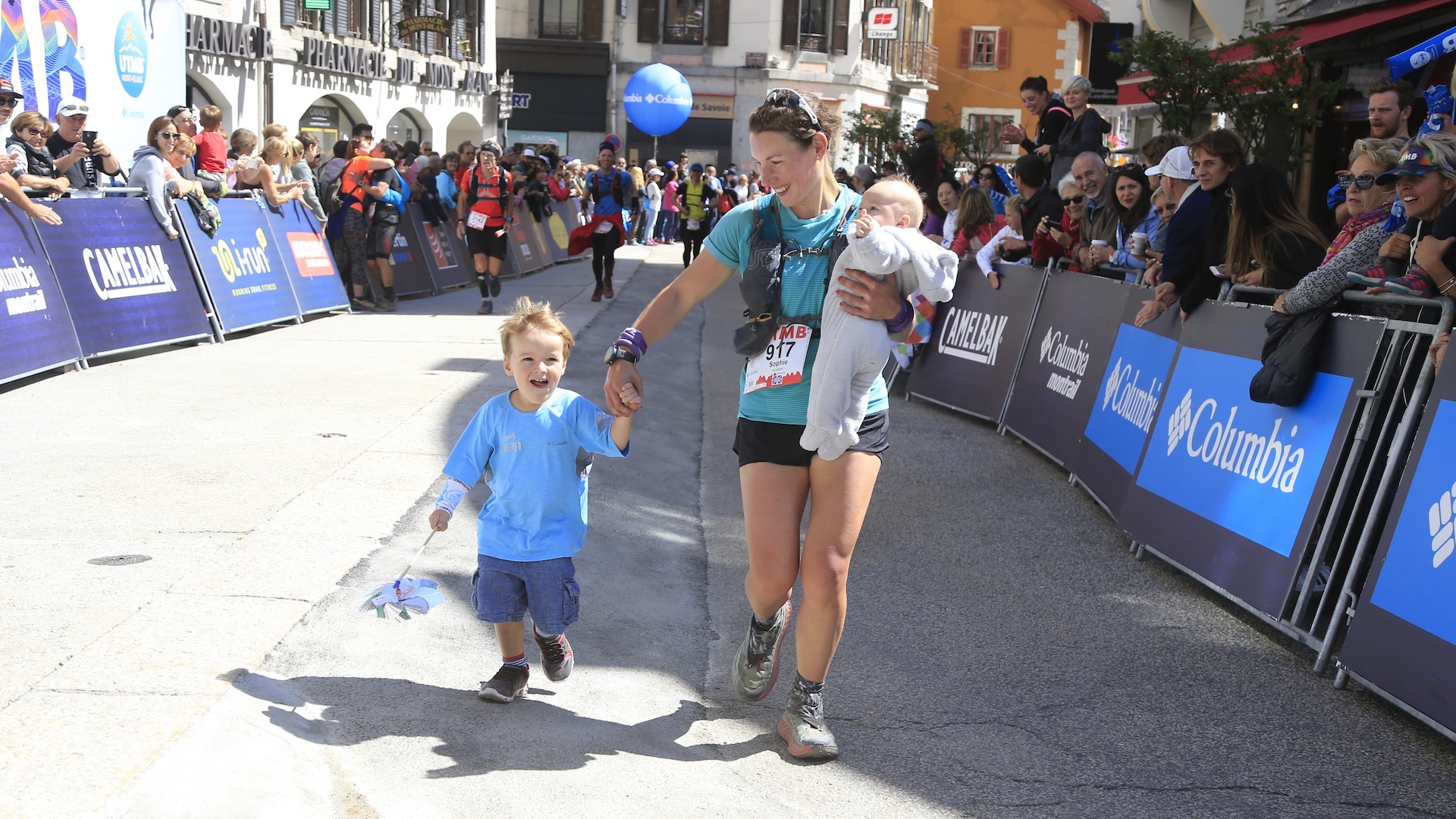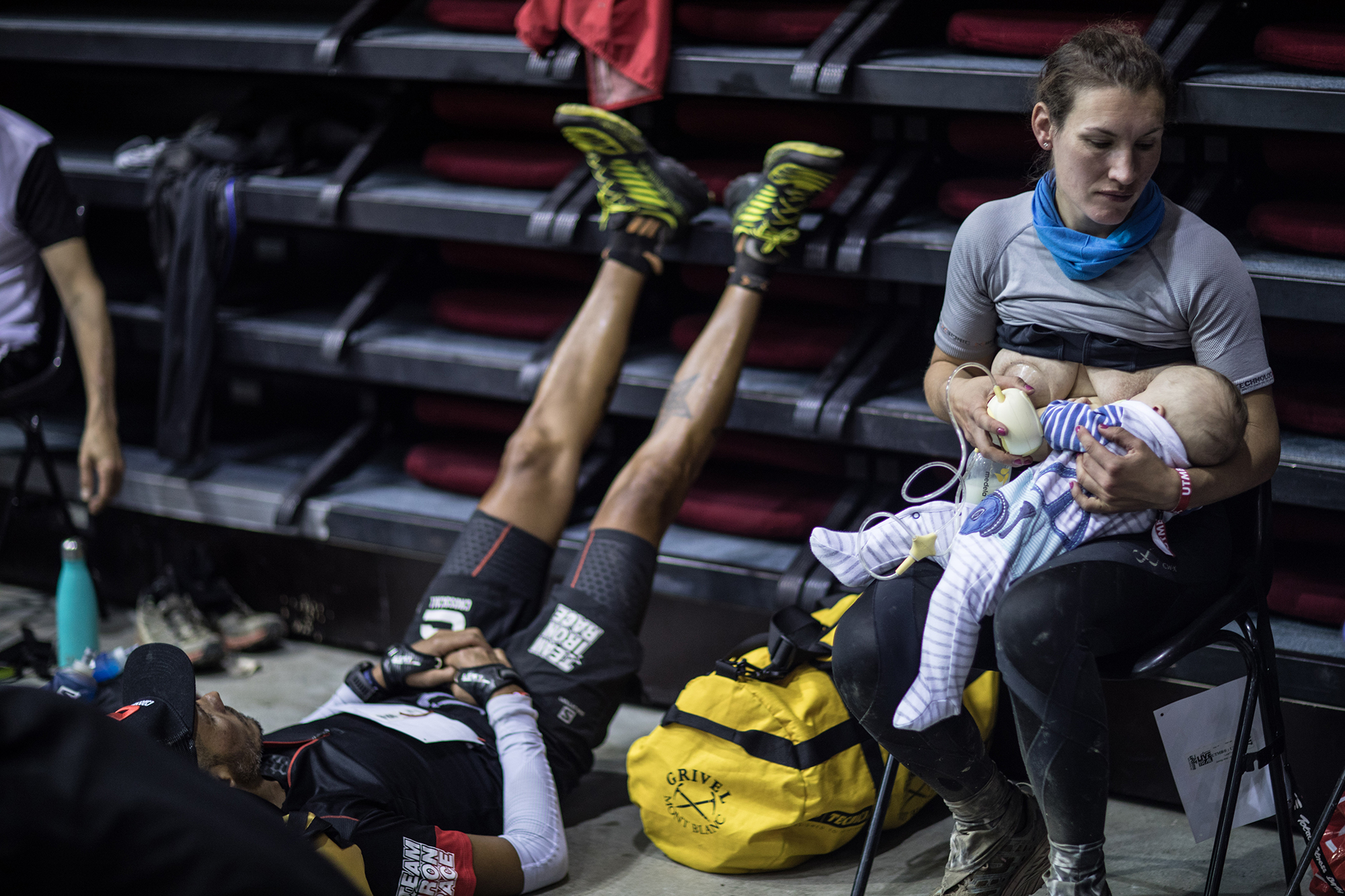More Major Running Races Update Their Pregnancy Deferral Policy

The Hardrock 100, one of the world’s best-known 100-mile ultramarathons, has become the latest high-profile race to update their pregnancy deferral policy for runners.
“At Hardrock, we firmly believe that runners of all types shouldn’t have to choose between chasing their dreams on the trails and pursuing the option of becoming parents,” the race announced on Instagram. Their updated Pregnancy Entry Deferral policy applies to pregnant women and new mothers, including parents by surrogacy and adoption.
Entry into Hardrock 100 is prized by ultra-trail runners who have to complete a qualifying 100-miler, plus an eight-hour service requirement (like volunteering at an ultra), and then enter a lottery. Many runners try year-after-year to get one of the limited number of places on the starting line, and until now, lottery-winning runners who became pregnant during the drawing period were unable to defer.
The new policy means that if a woman with entry becomes pregnant at any time between the lottery drawing and race day, or if they’ve given birth in the six-months leading up to lottery day, they are eligible for deferral of up to five years.
There is also a one-year deferral for entrants who become parents by surrogate or adoption, with the deferral also extending to partners (full details here).
While many runners celebrated the news, there was also a shared response of: it’s about time. And that’s a general sentiment around the running world, which has only seen races make these policy updates within the past two years.

In 2018, a photo of Sophie Power (also the lead image to this story) breastfeeding her three-month old son at an aid station during the 106-mile UTMB, drew much more attention to the subject.
“I wanted to defer my place until I was fully fit but whilst the organisation will defer places for injury, for them pregnancy is seen as a choice,” said Sophie. “Completing the UTMB was a dream for me, and having already lost a hard won place whilst pregnant with my first son I chose to race. Many women lose out on that opportunity.”
Sophie, who recently set a new world record to run the length of Ireland, was inspired by her experience at UTMB to start SheRACES, which aims to get equal opportunities for women at races, including updating pregnancy deferrals. Part of the work of SheRACES was developing race guidelines for race directors to help support female runners.
London Marathon, Chicago Marathon, Berlin Marathon and New York Marathon all have a three-year pregnancy deferral in place (currently New York doesn’t offer a free transfer, meaning women have to pay twice to defer). Boston Marathon offers guaranteed entry into either of the next two runnings, which can be deferred again if the runner becomes pregnant another time within that period. The Tokyo Marathon is the only World Marathon Major yet to update their pregnancy deferral policy. Most of these policies came into effect for the 2022, 2023 and 2024 runnings of these races.
Following the campaigning of Sophie and other runners, the UTMB World Series also committed to supporting mothers and their partners with a new pregnancy policy, which includes deferral and priority entry guidelines for athletes that are pregnant, athletes with a partner who is pregnant, and athletes that are adopting or becoming surrogate parents.
Broader policies of inclusion now also provide secluded spaces for women to be able to breastfeed at races, while also offering sanitary products in race villages and at aid stations.
As SheRACES states: “We believe a woman’s place is on the start line.” And sometimes more important things happen between getting accepted into race, and race day. Now more women have more opportunities to still take part in major running races.



























Running News
Will A Woman Run A Four-Minute Mile? Research Says It’s Possible
Tadese Takele And Sutume Asefa Kebede Win The 2025 Tokyo Marathon!
Boston Marathon 2025 Medal Reveal And Celebration Jacket